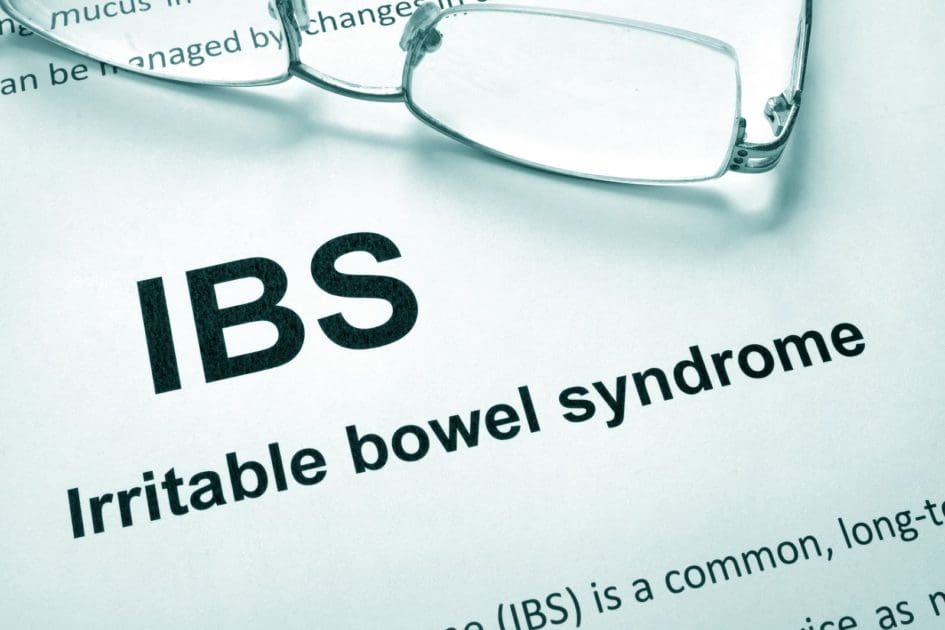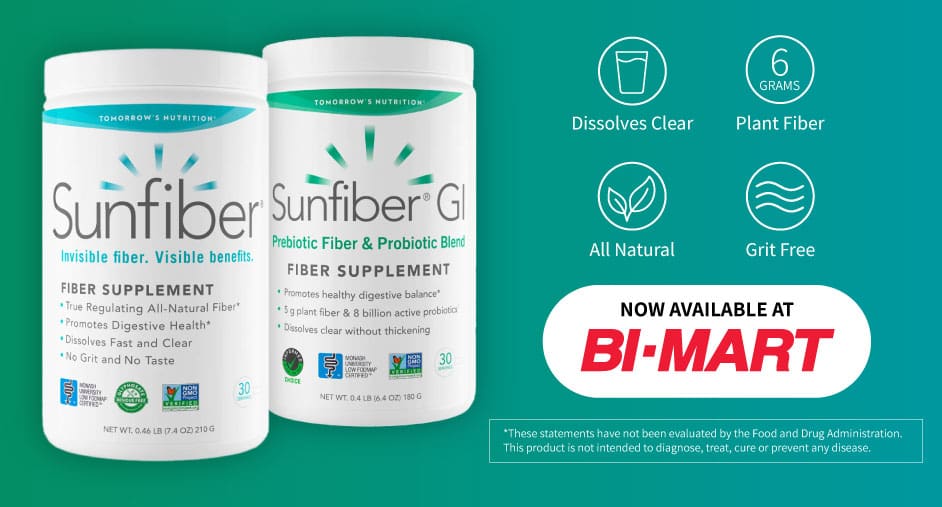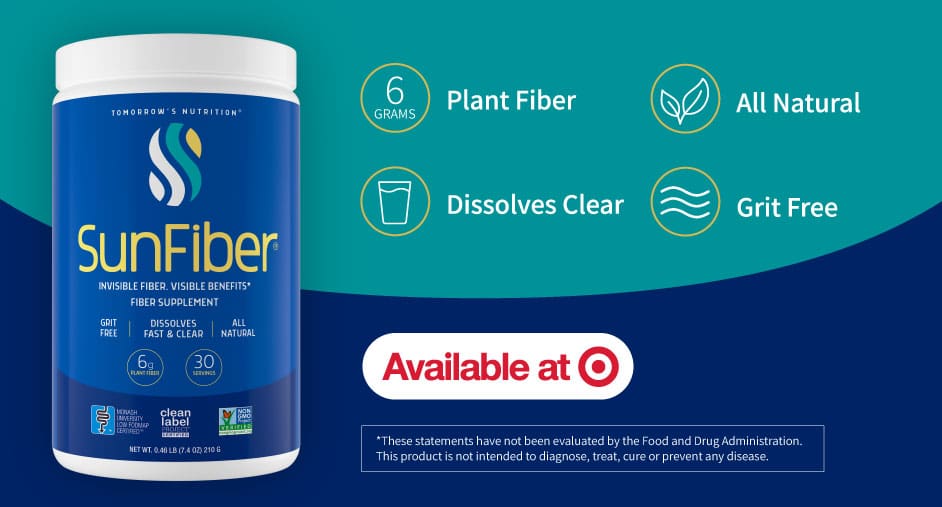April is IBS Awareness Month, when we call attention to Irritable Bowel Syndrome (IBS), a relatively common condition affecting about one in seven people. While there is no cure, IBS.org encourages people suffering from IBS to take an active role in managing their symptoms through diet and stress reduction.
Living with IBS can be challenging and not always straightforward. Clinical and safety evidence shows how Sunfiber (PHGG) may help, including eight studies specifically for its benefits related to IBS symptoms such as regularity, abdominal pain, gas and bloating.
Connection between IBS and fiber
It’s often noted that fiber deficiency can lead to IBS, but some forms of fiber can actually worsen symptoms. While fiber can relieve symptoms of IBS in some people, it’s important to choose a less-fermentable dietary fiber.
Some fiber supplements, such as inulin, GOS, wheat dextrin and IMOs, may cause additional gas and bloating.
Sunfiber, containing partially hydrolyzed guar gum (PHGG), has been shown to help those with IBS-C (constipation) to have more frequent and comfortable bowel movements. And it’s helped those with IBS-D (diarrhea) to have fewer bowel movements with better formed stool. Sunfiber may also help children with chronic abdominal pain or IBS.
Sunfiber is also the only fiber that can use the Health Canada-approved health claims for IBS. Specifically, a five-gram serving of Sunfiber may help to:
- Improve bowel regularity in people with IBS.
- Relieve constipation and gastrointestinal discomfort in people with IBS.
- Reduce the frequency of bowel irregularity and abdominal discomfort in people with IBS, including flatulence, bloating, dyspepsia and altered bowel habits.
- Relieve bowel irregularity, bloating and other gastrointestinal symptoms in people in IBS.
Studies have shown that reducing FODMAPs in the diet may help manage IBS. If you are currently following a low-FODMAP diet, or are considering one, to help you identify which foods are triggering your IBS symptoms, keep a canister of Sunfiber handy. The elimination phase of the low-FODMAP diet may also lead to constipation due to the restriction of high-fiber foods. Most traditional fiber supplements are high FODMAP, which can worsen digestive symptoms. Sunfiber was the first Monash University Low FODMAP certified™ fiber.
There is a clear link between IBS and fiber, but not all fiber will benefit or harm your gut in the same way. Look for fiber supplements containing PHGG if you’re dealing with IBS symptoms.





